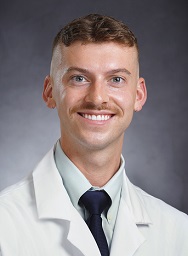Earlier this month, Dr. Uchenna Umeh of the Hospital for Special Surgery published an article titled “LGBTQ+ Basics: 10 Things Your Queer Patient Wishes You Knew,” which highlighted some simple, yet effective steps in affirming patients’ identities during health care encounters.
Dr. Umeh’s article does a fantastic job at highlighting basics for all medical providers who may feel uncertain about how to approach certain topics within the LGBTQ+ community, as well as providing tips for how to foster a welcoming environment for these folks. Below is an acronym she listed for easy reference on creating safe spaces:
- Acknowledge, accept, and affirm your patient.
- Believe your patient if/when they share their sexual/gender identity with you.
- Compassion, empathy, and vulnerability on your part will go a very long way.
- Decide to support them and learn as much as you can on your own to become a #QueerPatientAlly.
- Engage in open-ended communication with them.
- Find local support (virtual or in-person) for yourself and your staff, as that makes a huge difference in the long run.
This is important information because we should be affirming and respecting all of our patients, regardless of their sexual orientation/gender identity, but also, importantly, because we know that LGBTQ+ people have historically faced discrimination in medical practices, which leads to health care avoidance and ultimately worse health outcomes. For example, 50% of trans* participants in one study reported that they have personally postponed or avoided medical care due to discriminatory experiences in medical settings. This number is significantly higher than the national average, which estimates that 20% for the general populace have reported the same behaviors, continuing a common theme among multiple studies.1-4 Discrimination rates also increased with concurrent lower socioeconomic status, as well as disability and racial minority status.3,4 Trans* patients who delayed medical care were less likely to have preventative health checkups, and more likely to have depression and/or suicidal ideation.2
Given that we know this information, we as professionals are called upon to do something about it, starting with creating medical practices that are inclusive and knowledgeable regarding LGBTQ+ specific health concerns. In the end, it all comes down to respect and compassion, which is why many of us got into health care in the first place.
Here at Cooper, we have taken many important steps to assure all LGBTQ+ patients feel safe, seen, valued, and respected while in our care. For example, staff are encouraged to ask patients to provide their preferred name/pronouns, which are then input into the medical chart to ensure that identities are affirmed and validated throughout all encounters, from check-in to check-out and beyond.
Here’s a brief overview of commonly used pronouns. Note that this is not comprehensive, and is ever-expanding as we find new ways to self-identify:
- He/him/his (commonly shortened to he/him); g.,: He has arrived.
- She/her/hers (commonly shortened to she/her); g.,: She has arrived.
- They/them/theirs (commonly shortened to they/them); g.,: They have arrived. They/them is used in the singular sense, and denotes a gender-neutral way of identifying beyond a strictly “man or woman” gender identity.
If you happen to misgender, or say the wrong pronouns, it is okay to sincerely apologize and move on as long as you are coming from a place of authenticity and consideration.
Additionally, Cooper Care Alliance started Cooper’s Center for LGBTQ+ Health, a coalition of providers ranging across varying specialties from primary care to reconstructive/plastic surgery to mental health care and beyond, all committed to improving accessibility to compassionate, inclusive care without judgment. Please check out our website for more information on these services.
We at Cooper are here to celebrate and uplift our LGBTQ+ community this month and every month!
Sean Ryan Kirker (he/they) is a physician assistant who joined Cooper Care Alliance (CCA) in June 2022, providing general primary care with special interest in LGBTQ+ health (including, but not limited to, gender-affirming hormone therapy, PrEP for HIV prevention, etc.). He comes to CCA with previous experience working in urology and is excited to start this new chapter in family medicine. He is dedicated to creating a space that is safe, inclusive, and affirming to all while providing quality medical care. He is currently accepting new patients at the Cooper Care Alliance at Brace Road location, where appointments may be made within 24 to 48 business hours.
References:
- Cruz, T., 2014. Assessing access to care for transgender and gender nonconforming people: A consideration of diversity in combating discrimination. Social Science & Medicine, 110, pp.65-73.
- Seelman, K., Colón-Diaz, M., LeCroix, R., Xavier-Brier, M. and Kattari, L., 2017. Transgender Noninclusive Healthcare and Delaying Care Because of Fear: Connections to General Health and Mental Health Among Transgender Adults. Transgender Health, 2(1), pp.17-28.
- National Center for Transgender Equality. The Report of the 2015 U.S. Transgender Survey: Executive Summary. James SE, et al. Dec 2016. (Updated: Dec 2017.) Accessed March 12, 2019.
- Winter, S., Diamond, M., Green, J., Karasic, D., Reed, T., Whittle, S. and Wylie, K., 2016. Transgender people: health at the margins of society. The Lancet, 388(10042), pp.390-400.

